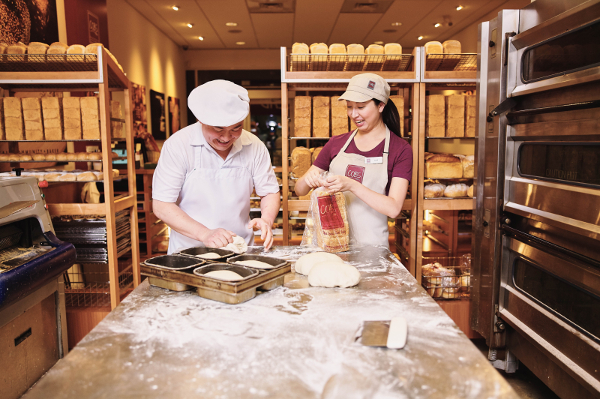Opening a small-town business puts you at the heart of a new community, and investing in a franchise business might be the perfect turnkey solution. Here’s what’s hot in the B.C. market now.
By Matt O’Grady
When we hear the word franchises, most of us think of fast-food chains, like McDonald’s or Tim Hortons. But according to lawyer Peter Snell, fast food represents fewer than half of the franchises being opened in Canada today. A partner with Gowling WLG with more than 20 years of franchise experience, Snell says maid and cleaning services, fitness and wellness concepts and seniors- and healthcare-related businesses are popular now. “Any business you can successfully replicate can be franchised,” he notes.
The impact on our economy is profound: according to the Canadian Franchise Association, 11 per cent of jobs in British Columbia are, either directly or indirectly, created through franchising. In 2018 alone, 520 new franchises and more than 75,000 franchise units were opened across Canada.
In Good Company
Buying a franchise, says Snell, is ideal for those who want to be “in business for themselves, but not by themselves.” When you open an independent restaurant serving food just like your mom made, for instance, you take huge risks on the concept and its reception. By contrast, opening a Panago Pizza comes with a well-established brand, and the franchisor’s proven systems and expertise–everything from standard procedures and operating manuals to inventory-control systems.
You also get assistance with the kinds of logistics that solo entrepreneurs can struggle with: concerns like location selection, lease negotiation and site development; hiring designers, builders and shop fitters; equipment purchasing; training and management assistance; and advertising and merchandising support.
Setting Up Shop
While a franchisor can often provide market research on locations, Snell recommends that prospective franchisees do some homework, using tools like Statistics Canada online demographic data. “Is [a community] growing, is it shrinking? Is it an older, aging town or is it a young, vibrant up-and-coming one?”–important factors in selecting a business location.
He uses the Cobs Bread model (“a great system”) as an example of a franchise network that’s quickly reaching its stride, with more than 100 Canadian locations and a goal of reaching 300 in the next five years. “They’re in rapid expansion growth at the moment, and finding that some of their best opportunities are in smaller markets.” While Snell says that every size of market can have its own advantages, he says you must have a clear understanding of whether your chosen community can support another Pilates studio or poké restaurant before you invest.
Your franchise concept should be not only viable, but alligned with your goals and interests. For those close to retirement age, a franchise like Expedia CruiseShipCenters can be an entry point into a global industry and a new lifestyle. “You can get involved with setting up an Expedia location and indulge your passion for travel as well as your desire to still have a business,” Snell says.

Staying in Your Lane
With all of franchising’s advantages, there are some drawbacks. There are regimented systems, and you’ll need to follow them. Snell, who was a special advisor to the provincial government when B.C.’s most recent franchise legislation was introduced, mentions limits on the terriotory in which you can operate or promote your business, restrictions on when and how you can exit the business and the ongoing fees that need to be paid to a franchisor as only a few considerations to be weighed against the conveniences of a turnkey business concept.
Most importantly, make sure you understand all aspects of the franchise model, and what it will require from you. “It’s not a passive investment. You need to make it clear what your expectations are going into it and what the franchisor’s expectations are–because you don’t want to be in for a rude shock.”
CHAIN OF COMMAND: FRANCHISE FACTS.
Talk to a lawyer: As of February 2017, B.C. introduced specific legislation dealing with franchise law–so you’ll need a lawyer who’s familiar with the current rules of franchise disclosures
Do your research: The Canadian Franchise Association’s website (cfa.ca) and the International Franchise Association’s website (franchise.org) have lots of information for those interested in pursuing a franchise concept.
Other resources: Community Futures, with 34 offices throughout rural B.C., offers help like support services, business planning advice, loans and self-employment assistance. Local business and economic development groups, like Imagine Kootenay, are places to seek advice, community and even listings of local businesses for sale.


